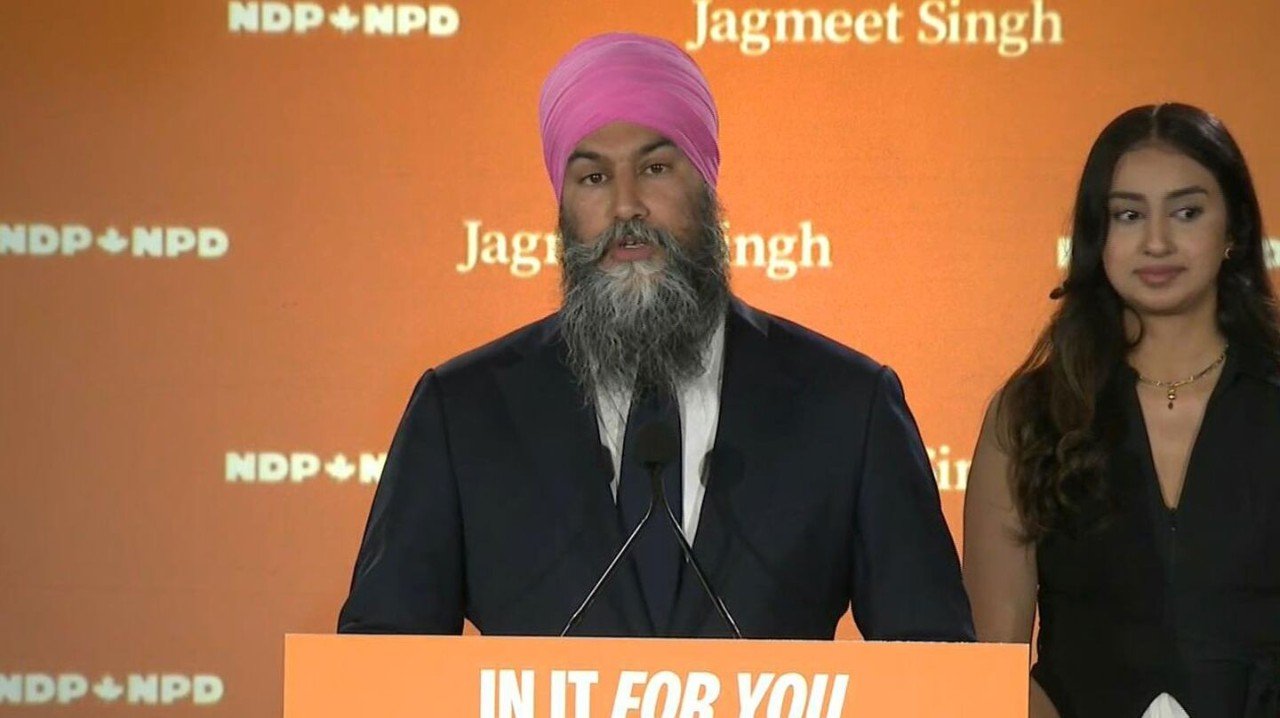Jagmeet Singh Steps Down As Leader After NDP Party Status Revoked
Photo Credit: CTV
Following the results of the 2025 Federal Election, and the loss of his own seat in the House of Commons, longtime NDP leader Jagmeet Singh has stepped down from his position as party leader. The election on Apr. 28 saw a low voter turnout for the New Democrats, resulting in the NDP falling short of official party status by five seats.
This year’s federal election occurred during a time of uncertainty, political unrest, and external pressures. Following former Prime Minister Trudeau’s sudden resignation in January, Mark Carney was appointed as the new leader of the Liberal Party. The election campaign featured Carney and Conservative leader Pierre Poilievre showcasing strikingly different approaches to the challenges facing Canadians.
US President Donald Trump’s recent policies have also become a defining issue in the election, as Canadians grappled with the consequences that tariffs would have on Canada’s economy, and the president’s promise to make Canada the 51st state. Carney’s Liberal Party built much of their success on pointing out the flaws in Poilievere’s responses to the president’s threats. A Liberal press release headline from early April encapsulated their general theory that “Pierre Poilievre has no plan to stand up to President Trump.”
As the election grew closer, it became a two party race as the Liberals and the Conservatives fought for the popular vote. Abacus Data reported that a week before the election, the Liberals held a 40 per cent share of the federal vote intention, while the Conservatives trailed only slightly behind with 38 per cent. Through the back-and-forth polling for these parties, the NDP held a fairly consistent 11 per cent of support among intended voters in the same poll.
According to David McGrane, an expert on the NDP’s marketing strategy and a political science professor at the University of Saskatchewan, the loss in voting intention for the NDP was heavily impacted by President Trump’s influence on Canada. NDP voters “viewed [...] Poilievre as the next Trump, and that really made them scared,” McGrane told the Regina Leader Post. McGrane explained that as the safer option to prevent a Poilievre government, many voters chose the Liberal candidate in their riding.
This decrease in NDP turnout was seen directly as the polls began reporting. While the party secured seven seats throughout British Columbia, Alberta, Nunavut, Manitoba, and Quebec, they fell short in other ridings that have historically swayed in their favour. Compared to the 2021 election, the NDP lost over half of their seats in the House of Commons, and faced an almost 12 per cent decrease in the general vote share, according to Elections Canada.
While the Liberals took the minority government and Carney won his seat in Ottawa, other individuals and parties saw significant losses. Most prominently, Pierre Poilievre lost his seat of nearly two decades to Liberal candidate Bruce Fanjoy. Additionally, all three other minority parties — the Green Party, Bloc Québécois, and the People’s Party — saw a decrease in their vote share since 2021.
However, a major loss for the NDP came fairly early on election night. Jagmeet Singh, who has served as the NDP party leader since 2017, lost his seat in the Burnaby Central riding. On election night, as Singh trailed in third place, he spoke to supporters at his Burnaby headquarters. In his address, he conceded his seat in the House of Commons and wished the new MP — Liberal candidate Wade Chang — well in his new position.
Singh’s emotional speech was heightened when he announced his plan to step down as party leader as soon as an interim leader could be appointed. Longtime Vancouver Kingsway MP Don Davies later took on the role. In his speech, Singh also commented on the work done by volunteers, NDP candidates, and voters, thanking them for the support they gave him over the years.
Singh shared the same disappointment as NDP voters in the low number of seats, but expressed that he was in no way disappointed with their movement. “I’m hopeful for our party,” he shared with the audience. “I know that we will always choose hope over fear, [...] optimism over despair, and unity over hate.”

